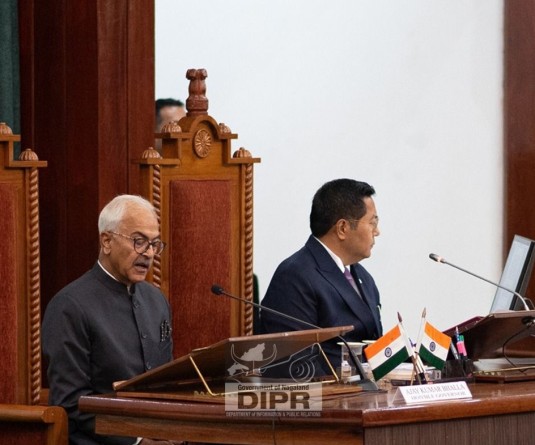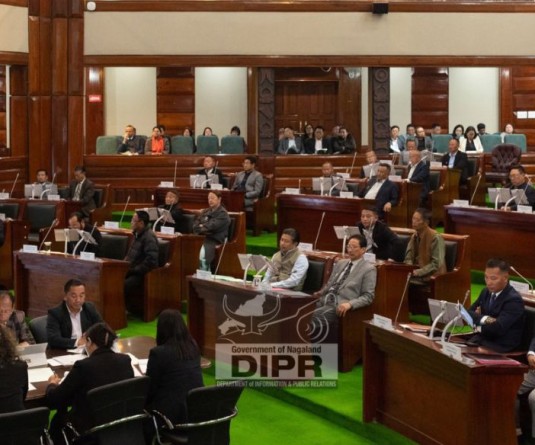
Dimapur, April 4 (MExN): Pointing out that Nagaland State is facing an acute shortage of power, the Chief Engineer of the Department of Power, Er. K Miachieo today informed that “the availability fluctuates on day-to-day and hour-to-hour basis.” He stressed that while the “peak demand” is 110MW, and the “off-peak demand” is 70MW, the power available is only “40MW and 25MW respectively.” Based on this information, it implies that there is a deficit of 70MW during the peak demand and 45MW during the off-peak demand. Considering that only “1/3rd” of the requirement is available, “which is also not firm,” the Chief Engineer has informed that, “it is difficult for the department to even follow a consistent load shedding schedule,” and has requested the public to co-operate with them under the given circumstances.
‘We understand the reasons but it doesn’t mean we have to stop raising our voices’
With the power department informing the people that load shedding would be intensified in Dimapur, the new load shedding schedule effectively means that the town will experience only twelve hours of electricity in a day. The department has been reiterating its reasons for the power cuts ravaging the entire state. The low levels of water in hydro power stations, the disproportion between the supply and demand of power in the state, and the lack of proper infrastructure among others have all been cited as reasons for the power crisis. The department further informed that “the situation is inevitable.”
The reasons may be genuine, but the question is whether it is inevitable. It is also understood that bottlenecks in funding and infrastructural development leave the concerned department with their hands tied. Speaking to The Morung Express, various denizens of Dimapur are tired of excuses and desire long-term sustainable solutions to the power crisis.
Kapil, who works at a printing press points out that he has to turn away customers because of the power cuts. “I’m losing business”, he exclaims. “I know there are reasons for the power cuts, but it’s affecting my livelihood now.” He adds that even his power back up gets exhausted due to the constant cuts.
Temjen, a musician who owns an independent home studio expresses his dismay at the present electricity scenario. He is currently in the process of recording an album but has to cope with the frequent power cuts. “It’s difficult to get into the groove of the recording process, when the power goes off every one or two hours,” he adds. With plans to commercially expand his studio, he says that the power outages would be a financial hurdle to his entrepreneurial aspirations.
Economic effects of load shedding on the business and entrepreneurial community are evident. However, there is a human aspect to it as well. Bahadur, a daily wage worker works nine hours a day in the glaring sun and when he gets home, the small fan he just bought cannot be used. He exclaims that after a hard day work, a brief relief from the heat is hard to come by these days. This daily wage worker does not understand the complexities of power generation but is nonetheless affected by the problem.
Jacob, a teacher expresses his understanding of the reasons cited by the department. However, he adds, “we understand the reasons but that doesn’t mean we have to stop raising our voices.” He further states, “We can’t be expected to just drop the issue. If there are genuine reasons for the power cuts, the concerned department should be more proactive in solving the problems.”
The helplessness of the department points to a larger problem. It also reflects apathy on part of the power holders. The shared difficulties expressed by the people suggest that in spite of recognizing the difficulties, there is a need to translate it into a concrete policy. The concept of a welfare state emphasizes the need to provide basic human needs to the people. In this modern age, electricity is one of the most basic needs for a society and its economy to progress. As a result, it is time for the ‘State’ to take immediate and effective action rather than providing the redundant reasons.






